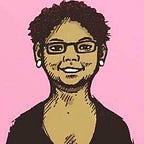Moving beyond the LGBTIQA+ Acronym
Terminology can be confusing and appears to be ever-changing. Still, it is an important political and practical concern for people with diverse sexualities, genders, expressions, and bodies.
The acronym has grown from LGBT to LGBTQ to LGBTIQA+. It’s increasingly considered problematic because, in my view, from an international aid perspective, the labels available in the acronym do not align with the diversity of experiences and identities of sexuality or gender outside of the global north.
The common LGBTIQIA+ abbreviation is rooted in certain understandings and assumptions of sexual orientation, Gender Identity, Expression, and Sex Characteristics that do not always have the same meaning or value for specific cultural groups and are sometimes seen as imposed by Western actors.
Although the ‘+’ is used to acknowledge ‘others’, it reinforces within the acronym that identities stemming from the global north are more important and that specific cultural identities in the global south are indistinguishable from the LGBTIQIA+ identities or less important. In other words, it ‘others’ specific people with identities from the majority world. For many, this is another form of colonisation — the irreparable destruction of specific cultural identities and practices.
Beyond being a mere reference to identities or practices, local terminology often carries profound spiritual or cultural significance. This is evident in terms like ‘ hijra ‘ in South Asia, ‘waria ‘ in Indonesia and Malaysia, ‘fa’afafine ‘ and fa’atama’ in Samoa,’ leitis’ and ‘fakatangata in Tonga, ‘vakasewlasewla’ in Fiji, ‘burrnesha ‘ in the Balkan states, ‘two-spirited people’ among North American First Nations, ‘yan daudu ‘ among the Hausa in Nigeria, muxes from or the ‘bacha posh ‘ practices in Afghanistan, to name just a few.
Respecting how people identify themselves and understanding their place in wider society is key to pursuing locally owned, locally led and meaningfully inclusive humanitarian and international development responses.
Using appropriate language and cultural knowledge is not just a suggestion, it’s a necessity. It can be the basis for better ways of working, informing what needs are assessed and how, who gets counted or registered for assistance, and how that assistance is delivered. This understanding is crucial for effective and respectful humanitarian responses.
So, when we are talking more broadly, to encompass the diversity that exists, what terms should be used? SOGIESC is the preferred initialism. SOGIESC is used to describe sexual orientation, gender identity and expression, and sex characteristics collectively for the purposes of law and policy, most often in human rights and anti-discrimination law. This is highlighted by the creation of the UN Human Rights Council with the mandate of Independent Expert on protection against violence and discrimination based on sexual orientation and gender identity (also referred to as the Independent Expert on sexual orientation and gender identity, or the “IE SOGI”. While it does not include gender expression and sex characteristics, most LGBTIQ+ / diverse SOGIESC regional Rights Holder Organisations, like the ASEAN SOGIE caucus and World ILGA, recognise and use the SOGIESC initialisms.
I like it because it focuses on characteristics rather than identities. It is also more inclusive, as everyone has a sexual orientation, gender identity, expression, and sex characteristics; we focus on those that are diverse from the typical ones forwarded by social norms.
So, in short, if you are a humanitarian or international development organisation wondering what terminology to use, it is best to be as inclusive as possible. This means using the specific terminology diverse SOGIESC civil society organisations or local communities suggest for particular communities and using the term SOGIESC if you want to acknowledge the diversity globally without identifying each and every possible identity.
